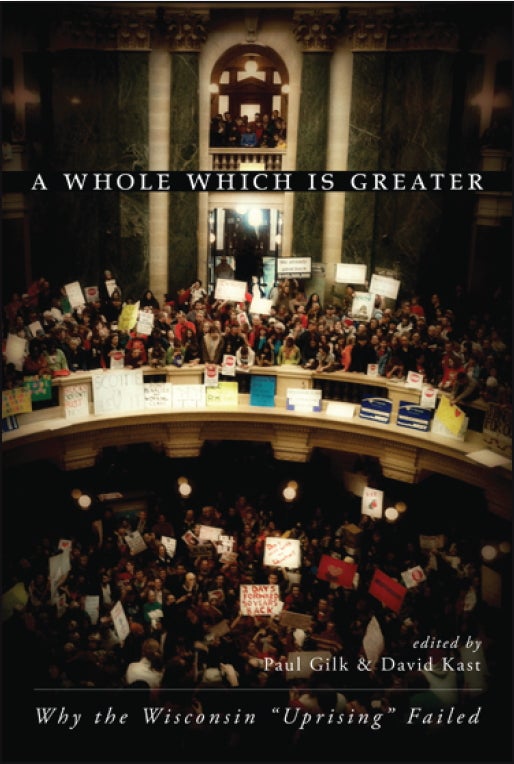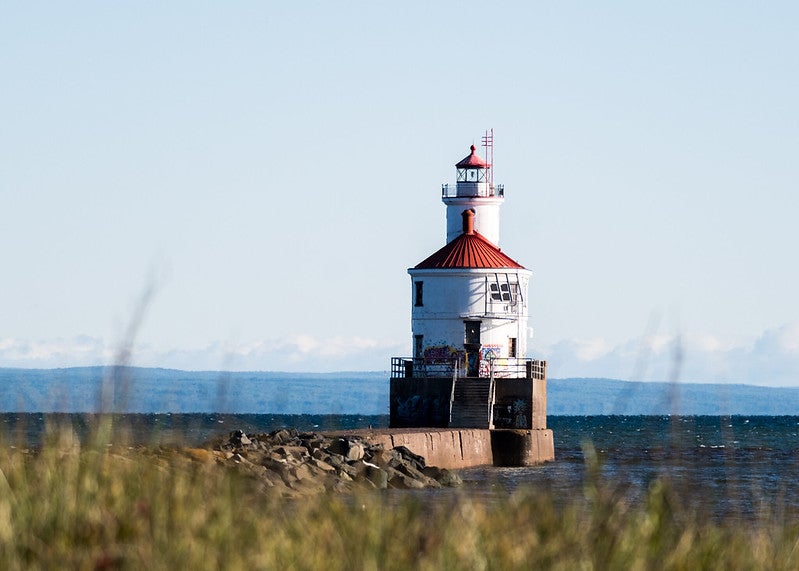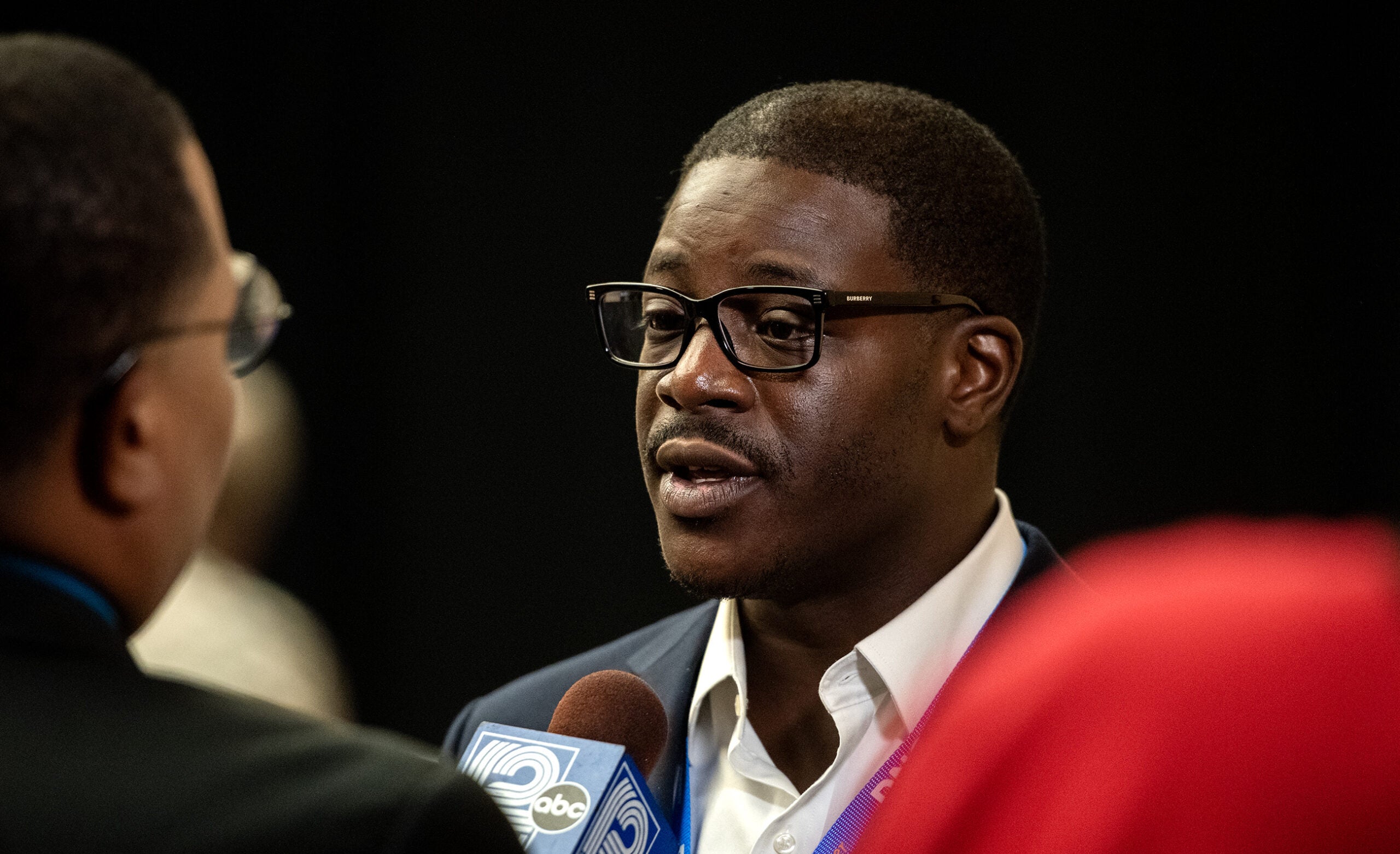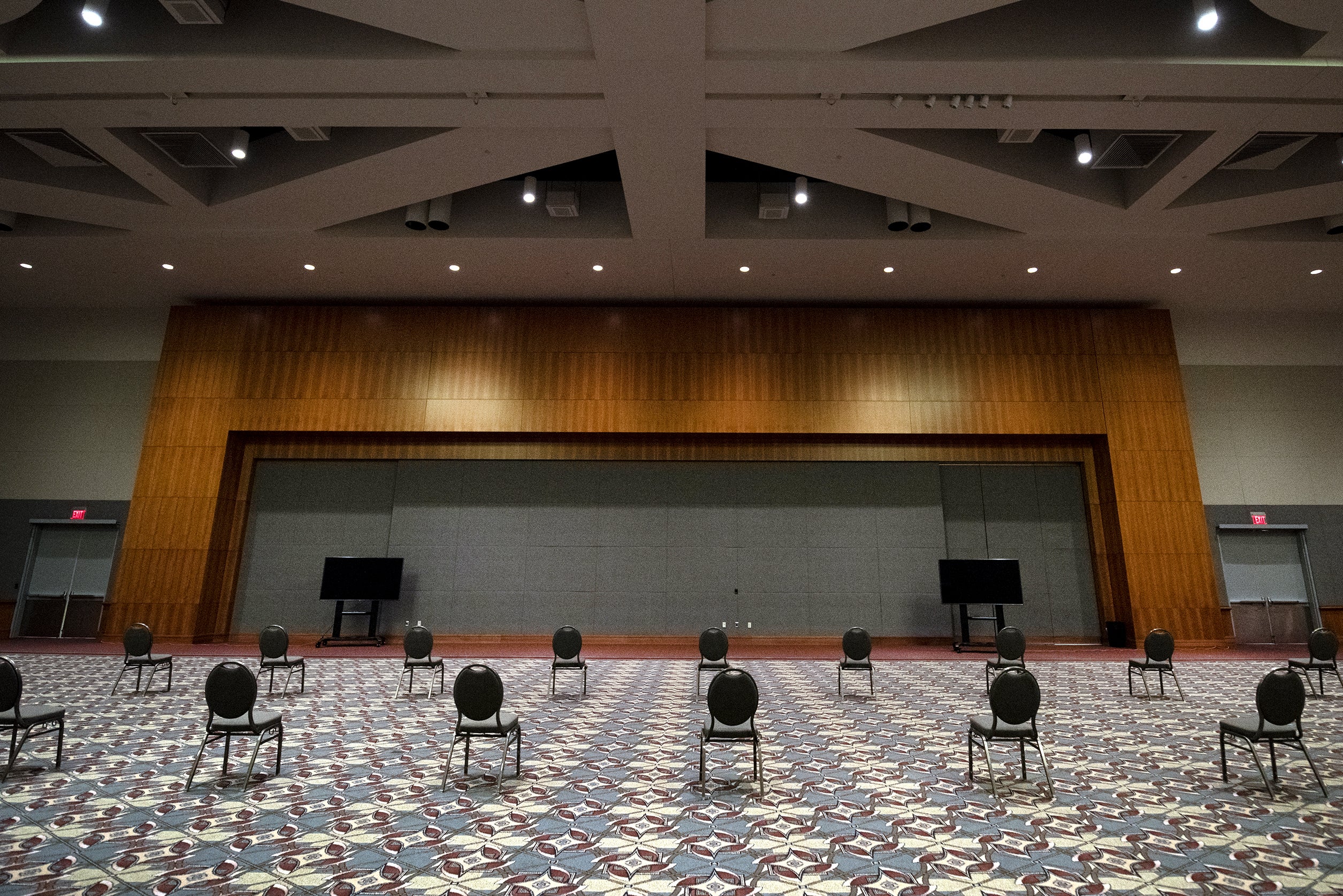Two years ago, as many as 100,000 people at any one time swarmed the Wisconsin state capitol building in protest, after Governor Walker proposed a series of austerity measures: most notably, repealing almost all collective bargaining rights from public employee unions.
They collected more than a million recall petition signatures against Walker and other elected officials, and to many, the ouster of Walker and his Republican allies seemed inevitable.
But today, Governor Walker and the Republican majority in the state legislature are more powerful than ever. So, what went wrong?
News with a little more humanity
WPR’s “Wisconsin Today” newsletter keeps you connected to the state you love without feeling overwhelmed. No paywall. No agenda. No corporate filter.
David Kast is out with a new book that explores that question. It’s called “A Whole Which is Greater: Why the Wisconsin Uprising Failed.”
TERRY BELL: back when all this started, – the protests, that is – it seemed like the opponents of the governor’s initiatives were winning the day. What happened?
DAVID KAST: One of the difficulties with the recall of Scott Walker was that he had just been elected, he was one year in when these recall protests took place, and I think a lot of the public in Wisconsin said he needs to be given his chance, so as a result, the recall failed.
TB: So that in your estimation is how a movement that would appear to have been quite deep and quite wide just didn’t come through with results?
DK: I think the great depth of the protests came from his decision to get the state assembly to vote down collective bargaining rights for unions. That single item – it wasn’t having the teachers or the public workers pay more of their health care or more of their pension benefits – it was the denial of their collective bargaining rights. And I think that if the protests had focused on that more, something may have come of that. But we’ll never know. I think the protests moving simply to recall him because of that, or because of other things as well, but simply to recall him, was perhaps misguided, though it’s easy with hindsight to say so.
TB: Your book is a compilation of essays. Is there any prevailing thoughts among these essayists about what happened, or are their thoughts all over the map?
DK: The thoughts are all over the map. Paul Gilk’s idea for the book – it was his idea to get this collection of essays – was simply this: use the Scott Walker election as a springboard, and then write about what’s going on. It could be in Wisconsin, it could be in the country, it could be in general. He took all Midwestern writers and they wrote a whole collection of essays. All the writers are progressive in tone, but they’re not all talking politics.
TB: 2011 was a huge year for uprisings around the world, from Wisconsin to the Arab Spring to the Occupy movement… how do you think the Wisconsin protests will be viewed by historians in years to come?
DK: (chuckles) One of the essays is by Jeff Lee, and he says- “Seeing Our Struggle from Distant Shores” was his essay – and he was in Lebanon at the time, I believe it was Lebanon. And he writes about what it was like viewing what was happening here, while there, during the Arab Springtime, also. So when I look at that, what I think is going to happen is, people are going to see a series of uprisings taking place around the world, and this is going to be one blip, and the only thing that might make it bigger is if there’s future outcome, and I don’t … I can’t make any predictions.
TB: David Kast, thanks for being with us.
David Kast will talk about his book this afternoon at 5:00 on the “Route 51” program on Wisconsin Public Radio’s central Wisconsin stations.Streaming information available at /regions/wau/route51/
Wisconsin Public Radio, © Copyright 2026, Board of Regents of the University of Wisconsin System and Wisconsin Educational Communications Board.





